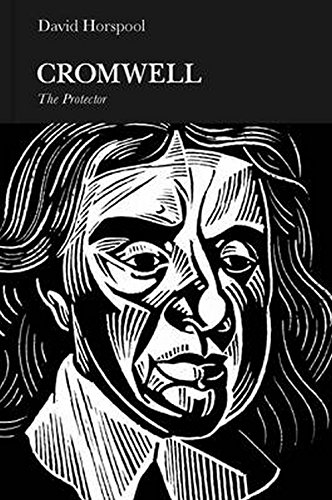Book Review : Oliver Cromwell (Penguin ‘Monarchs’)
 Oliver Cromwell by David Horspool
Oliver Cromwell by David HorspoolMy rating: 3 of 5 stars
If like me your view of Cromwell has been formed by the Movies (especially the 1970 Biopic “Cromwell” starring Richard Harris) then this book provides a brief but good overview of a very different kind of man.
A complex man – who wasn’t driven by our modern perceptions of democracy – but driven rather by religion and what was perceived at the time as to how a good King should behave.
A good read.
The Penguin Monarchs Series is a series of 45 books, all of between 80-100 pages long, providing overviews of the each British Monarch.
Penguin has brought together some of the country’s best historians to write the “innovative, provocative histories of Britain’s rulers”, and each book is illustrated by original, newly commissioned portraits of each monarch.
Book Synopsis
‘Official’ Book Description
Although he styled himself ‘His Highness’, adopted the court ritual of his royal predecessors, and lived in the former royal palaces of Whitehall and Hampton Court, Oliver Cromwell was not a king – in spite of the best efforts of his supporters to crown him.
Yet, as David Horspool shows in this illuminating new portrait of England’s Lord Protector, Cromwell, the Puritan son of Cambridgeshire gentry, wielded such influence that it would be a pretence to say that power really lay with the collective. The years of Cromwell’s rise to power, shaped by a decade-long civil war, saw a sustained attempt at the collective government of England; the first attempts at a real Union of Britain; the beginnings of empire; a radically new solution to the idea of a national religion; atrocities in Ireland; and the readmission to England of the Jews, a people officially banned for over three and a half centuries. At the end of it, Oliver Cromwell had emerged as the country’s sole ruler: to his enemies, and probably to most of his countrymen, his legacy looked as likely to last as that of the Stuart dynasty he had replaced.


